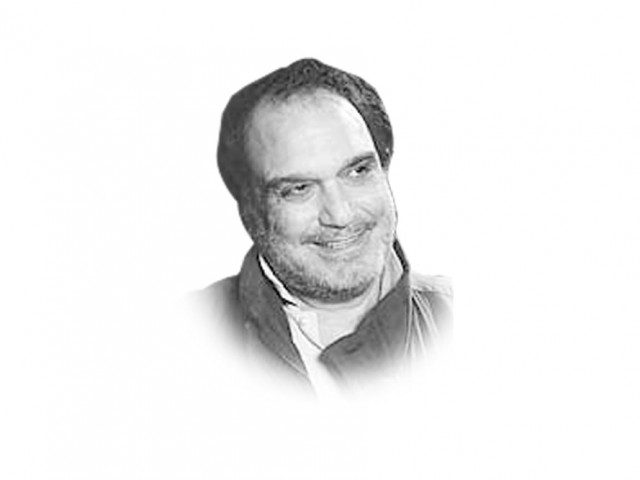Our ‘reactive’ extremism
Ideology may be founded on rejection of other ideologies and that may cause extreme behaviour.

The problem with this self-diagnosis is that we are mostly busy inflicting harm on ourselves. How can it be that Americans, Indians and Jews are causing us to become violent but our victims are innocent people? Extremism must have deeper and more convincing origins.
Violence is known to spring in primitive societies. This has compelled some sociologist to say that extremist personalities are usually possessed of low IQs. Pakistan has some level of literacy but here one must note that in 1947, when literacy was 17 per cent, people were more tolerant; today, with literacy at over 60 per cent, Pakistanis have embraced extremist views.
Literacy is a loaded concept. If education is ideologically slanted it may actually breed extremism. Paradox: one might have to abolish education in Pakistan to end extremism. The brainwash of nationalism breeds violent thinking and this applies to all nations, including the US, but not so much to the EU. Ideology may be founded on rejection of other ideologies and that may cause extreme behaviour.
Sociologists and shrinks say extremists are usually conservative, which means that they look at the present as an extension of the past. When you interpret an uncertain present in the light of a ‘certain’ past, you can be extreme in your rejection of the present. We know that the past is always interpreted in ‘definitely known’ categories by national historians.
Religion is based on certainty. It is certainty that breeds extremism and consequent violence. Europe went through this phase before it gave up on certainty and learnt relativism or self-doubt, which is another name for tolerance. Martin Luther (1483-1546), one of the founders of Reformation and Protestantism, made certainty the central pillar of his gospel-based faith.
This pushed him into extreme language when he rejected not so much the Pope — whom he called Anti-Christ — but his fellow Protestants of the Swiss Restoration in unprintable language. His diatribes against the Jews were shockingly unprintable, too. Today, Lutheran Christians are mild-mannered because they have had to bowdlerise their founder. But the extremism of the Restoration led to the Thirty Years War (1618–1648) of internecine Christianity. It ended in the Treaty of Westphalia, which made the European state permanently secular.
Extremism simplifies and reduces. To create group behaviour, reductionism has to be the central tenet. The state embraces it, otherwise it cannot construct its nationalist narrative. The religious man leans on it to retain the validity of his teaching.
Revolutions are born out of extremism and end in a lot of destruction. The religious man also promises revolution. Pakistani politicians with violence on their minds also promise ‘revolution by someone else’. Talibanisation in Pakistan is not a process invented by the Taliban. In fact, the Taliban may be embarrassed by the extremism of those who are supposed to fight them.
Restraint gave rise to civilisation and the modern state. Restraint is born out of uncertainty about the views one holds. From the Supreme Court — whom no one can question — to the common man, an abstention from certainty must be practised.
The modern state is pluralist. It means there are laws that protect the rights of all kinds of groups with clashing identities. But in the Muslim world, the religious state is in vogue. When Muslims struggle for democracy, they actually mean to create a religious state. And that means more extremism.
Published in The Express Tribune, August 5th, 2012.















COMMENTS
Comments are moderated and generally will be posted if they are on-topic and not abusive.
For more information, please see our Comments FAQ